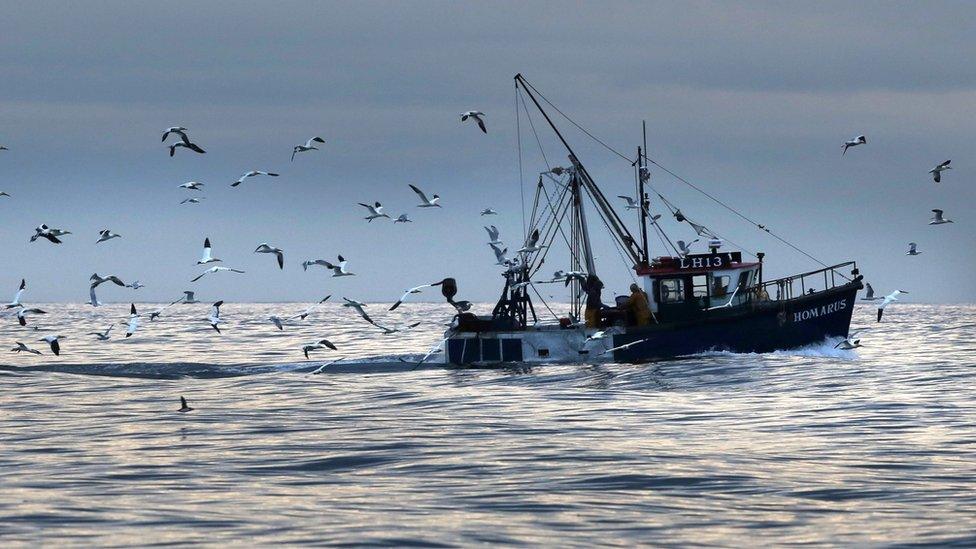Shell fishing fleet in Wales wants help with Brexit
- Published
- comments
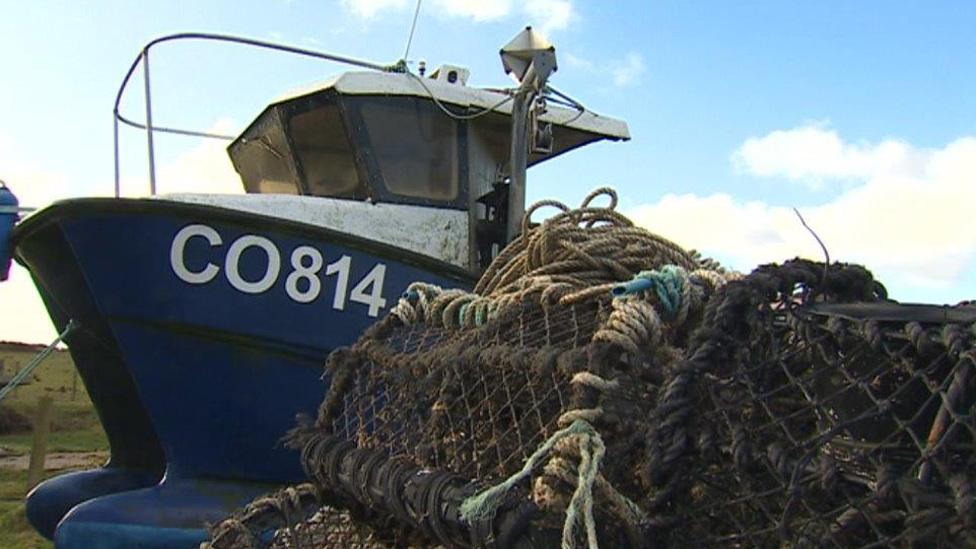
The Llŷn peninsula is typical of the Welsh industry made up of small shellfish businesses
Wales' fishing industry risks being "left behind" in Brexit talks due to its unique needs, a report has warned.
While the priority elsewhere in the UK is greater control over seas, the Welsh fleet needed easy access to EU markets, a think-tank said.
Most Welsh boats specialise in shellfish, with 90% of their catch currently exported to the EU.
The Welsh Government said it wanted to see the industry get "its fair share of fishing opportunities in the future".
The Welsh Fishermen's Association told BBC Wales that ministers needed to be planning a potential system of subsidies if fish exports were hit by tariffs and delays after Brexit.
It claimed fishing businesses would "go to the wall" otherwise, with big implications for Welsh coastal communities.
For decades, British fishermen have operated under the European Union's Common Fisheries Policy (CFP), external, designed to manage fishing and conserve fish stocks.
Now, the UK government plans to draw up its own Fisheries Bill, external to replace it, while the Welsh Government has also said it intends to create its own "dynamic and forward-looking" fisheries policy.
The Public Policy Institute for Wales (PPIW) report, commissioned by the Welsh Government, looked at the potential implications.
It found the Welsh fleet to be "particularly small-scale," with many catching shellfish such as lobster and crab.
Those species are not managed through EU quota limits, meaning fishermen can catch as much as they like.
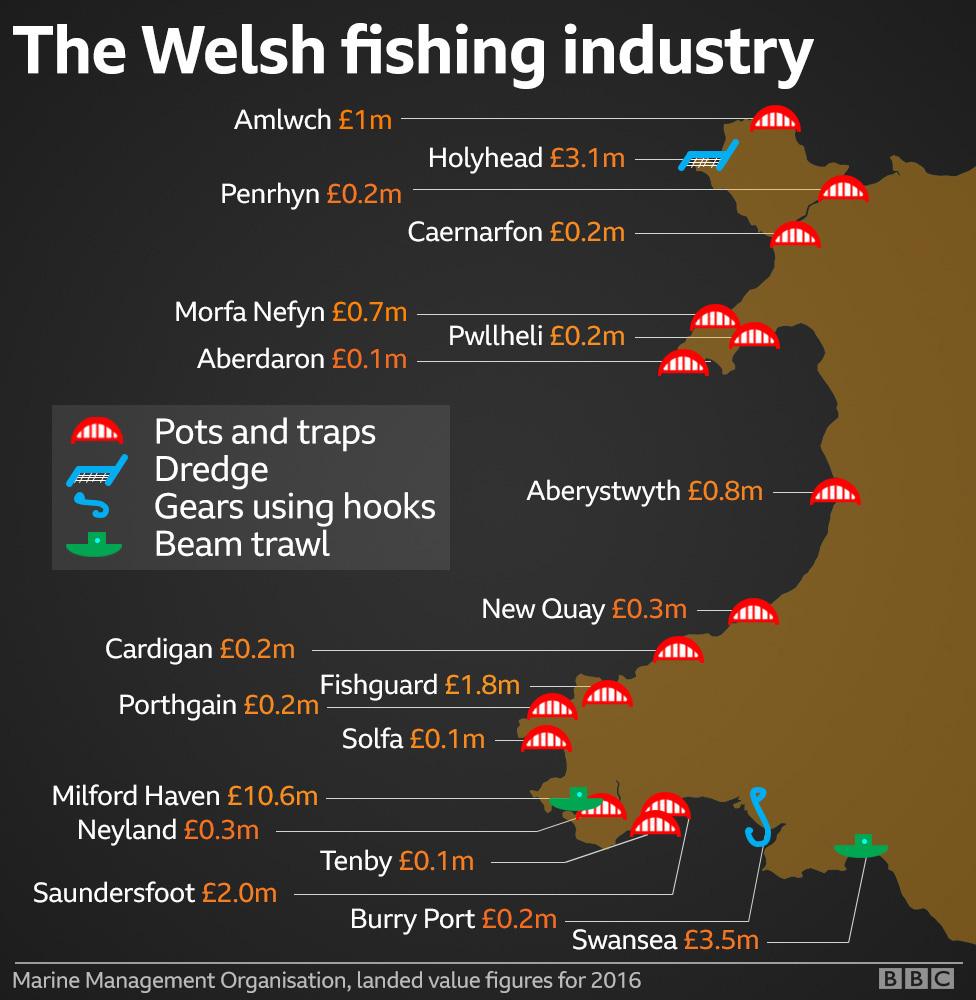
This map shows the value of landings around the coast of Wales and the type of fishing
Of the 451 vessels registered in Wales, 92% are small-scale, defined as under 10m in length.
It means the overwhelming majority of Welsh fishermen are not set up to take advantage of more exclusive access to an extended fishing area post-Brexit and would not immediately benefit if ministers decided to increase fishing quotas either.
However, as most of the seafood they produce is exported to EU countries or through EU trade agreements, potential tariffs and other barriers "could significantly impact market access and competitiveness".
The report examined six scenarios, including a soft, hard and no-deal Brexit, and found most Welsh fishermen would suffer in all but one, an unlikely Fisheries First Brexit where the industry's needs are given top priority in negotiations with the EU.
Many Welsh ports would also be hit and are estimated to be "worse off" after Brexit, especially if vessels from other EU countries like Belgium are restricted from landing their catch in Wales in future.
More than a third of the value of fish landed in Welsh ports comes from EU vessels.
In somewhere like Milford Haven, nearly half comes from Belgian boats.
The report recommends that Welsh ministers focus on efforts to maximise EU market access, "currently seen as more important than quota allocations".
Longer term, however, it predicts fishing opportunities in Welsh waters could increase significantly, if ministers change to a quota system based on the average quantity or weight of fish found in different areas.
It also suggests support measures to "fully exploit" opportunities in Wales.
However, the picture is complicated due to uncertainties over whether more powers over fishing will be devolved to Wales after Brexit and the fact that some more negotiations could be needed over fish which swim between UK and EU waters.
Sion Williams, spokesman for the Welsh Fishermen's Association, said the EU's quota system had disadvantaged Wales and pushed people like him into focusing on shellfish.
"Brexit will be an opportunity if we are able to get our hands back on the fish that are out there in our own sea here in Wales," he said.
"But it could also cause problems because at the moment we are a shellfish industry."
In 2017, Welsh fishermen landed £38.8m worth of produce, with 90% sold directly to EU markets.
Mr Williams, a lobster fisherman from Porth Colmon near Aberdaron on the Llŷn Peninsula, added: "It's vital that we have access to the market without any difficulties, or that measures are planned to compensate us if things go bad. Otherwise fishing businesses are at risk of going to the wall in Wales."
Fisherman Len Walters from St Dogmaels said Brexit would open new markets
But Len Walters, a fisherman in St Dogmaels, Pembrokeshire, said Brexit was not about an impact but presented a "fantastic opportunity" to develop the industry in Wales and shellfish prices had already risen.
A Welsh Government spokeswoman said: "The report supports our analysis that the industry is primarily dependent on shellfish exports and is particularly vulnerable to a loss of markets or any non tariff barriers.
"That is why it is so important that we maintain full and unfettered access to the single market."
A UK Government spokeswoman said it was "pursuing the best deal for all of the UK's fishing communities when we leave the EU".
She added: "As part of this, we are committed to securing tariff-free, frictionless access into the European market to help maintain a sustainable and profitable industry."
- Published11 December 2017
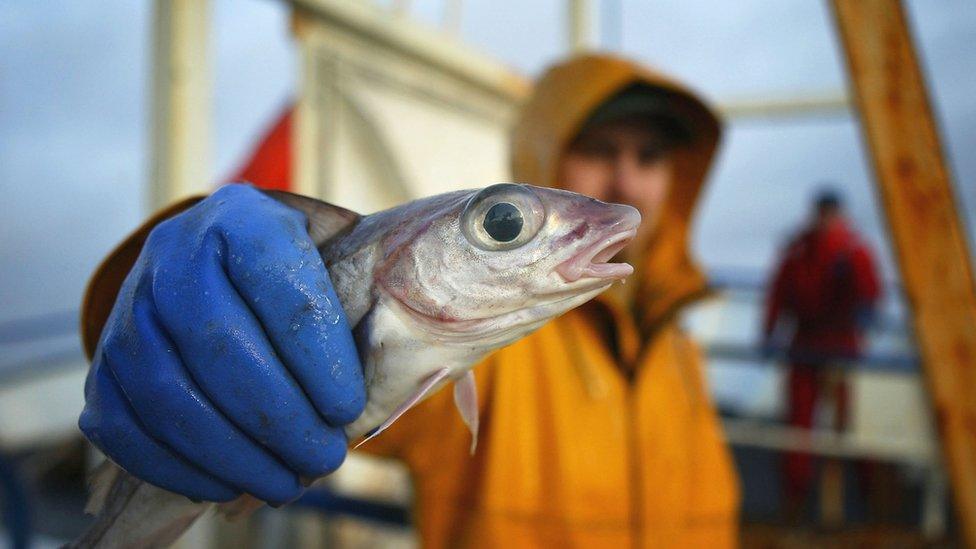
- Published13 December 2017
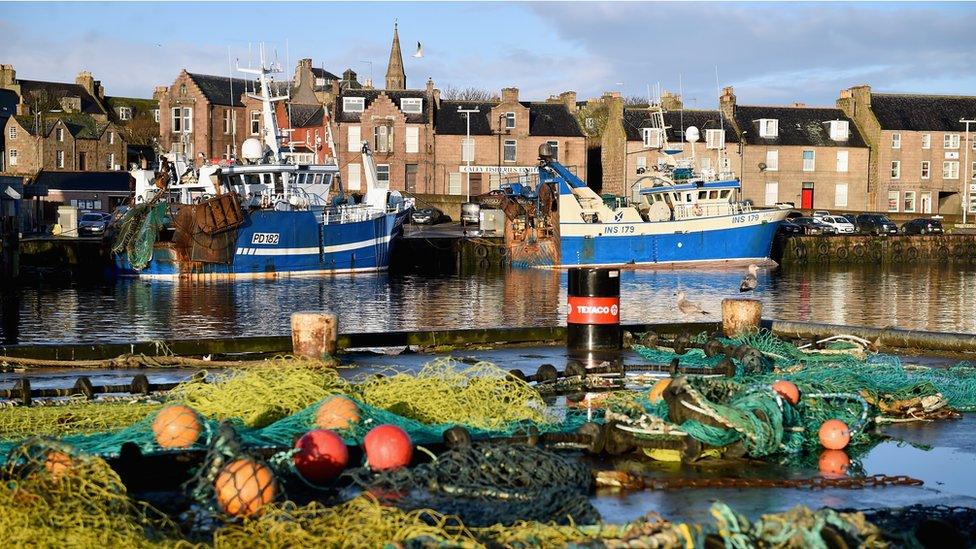
- Published3 August 2017
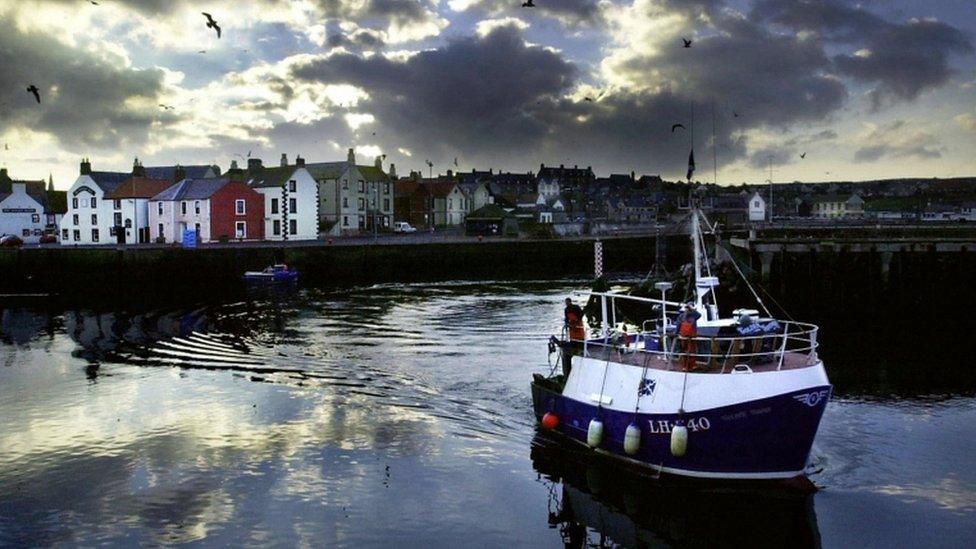
- Published2 July 2017
